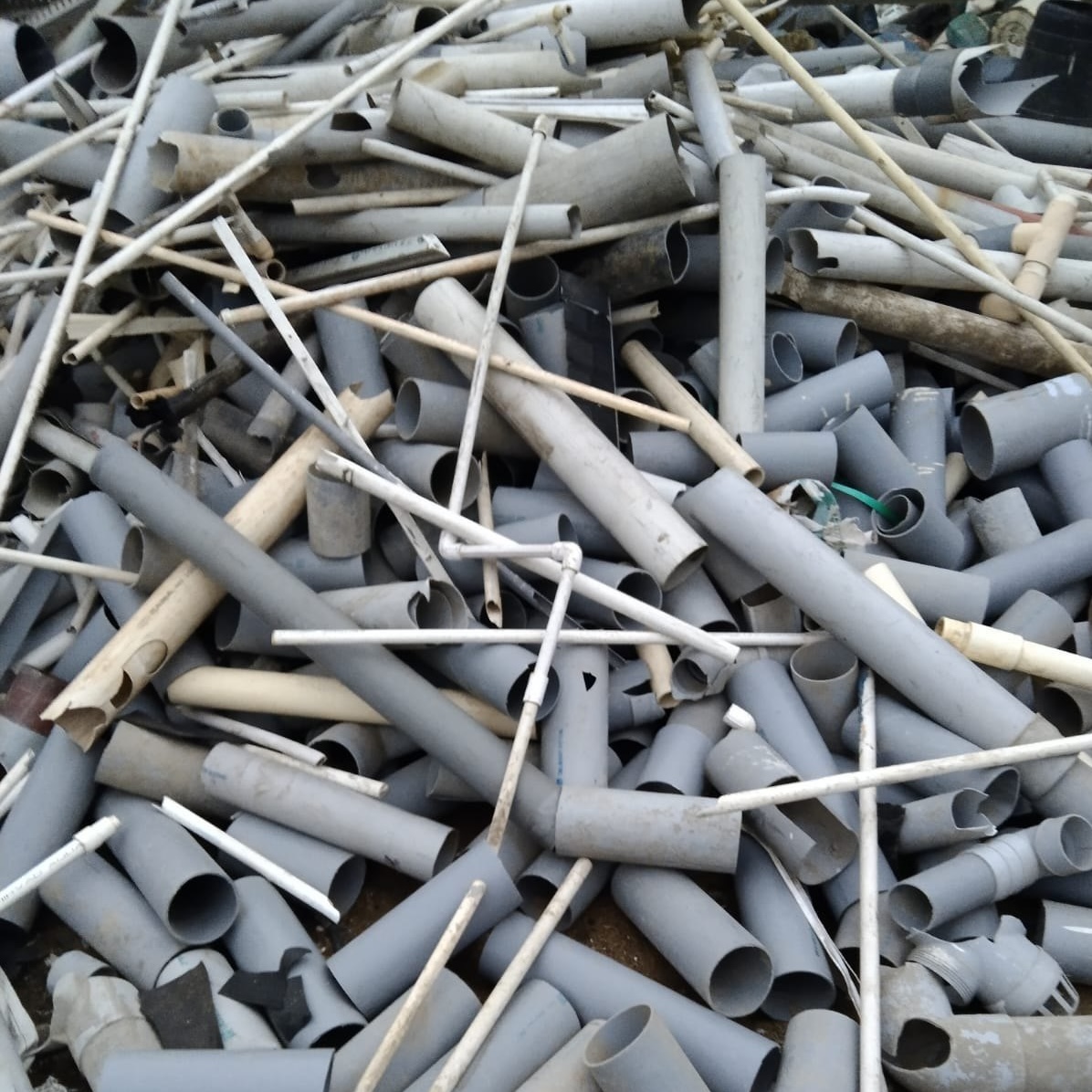
PVC Scrap
- Product Name: PVC Scrap (Polyvinyl Chloride)
- Material Type: Rigid and flexible PVC (post-industrial and post-consumer)
- Form: Granules, flakes, regrinds, pipes, sheets, profiles, and cables
- Color: White, transparent, colored, or mixed (as per customer requirements)
- Origin: Germany
- Purity: 95% – 99% PVC content (minimal contamination)
- Density: 1.3 – 1.45 g/cm³
- Hardness: Varies by form (Shore A for flexible, Shore D for rigid)
- Moisture Content: Less than 0.5%
- Packaging: Bags, bales, or bulk, depending on the form and customer needs
- Melting Point: 75°C – 105°C (depending on additives)
- Contaminants: Free from hazardous substances, metal parts, and non-PVC materials
- Recyclability: 100% recyclable for use in construction, automotive, and consumer products
- Environmental Compliance: Processed under Germany’s strict environmental and recycling regulations
- Certification: In compliance with international recycling standards and quality regulations
Description
PVC Scrap (Polyvinyl Chloride) consists of post-industrial and post-consumer PVC materials collected, sorted, and processed for recycling. Known for its durability, chemical resistance, and versatility, PVC is widely used in construction, packaging, and manufacturing. The scrap includes a variety of forms such as pipes, profiles, sheets, cables, and window frames. Sourced from Germany, where stringent recycling regulations ensure high-quality materials, the PVC scrap is free from hazardous contaminants and is suitable for reprocessing into new industrial and consumer products.
Application:
PVC Scrap is widely used across multiple industries due to its high durability, chemical resistance, and ease of reprocessing:
- Construction Industry: Recycled into pipes, window frames, flooring, roofing membranes, and wall panels.
- Automotive Industry: Used in the production of dashboards, door panels, and cable insulation.
- Electrical Industry: Reprocessed into insulating materials for electrical cables and wiring.
- Packaging Industry: Utilized in manufacturing rigid and flexible packaging, including containers and blister packs.
- Furniture Manufacturing: Recycled into synthetic leather, panels, and decorative materials.
- Agriculture: Used for irrigation pipes, greenhouse films, and fencing materials.
- Consumer Goods: Converted into toys, sports equipment, and household items.
- Recycling Industry: Contributes to sustainable practices by reducing the demand for virgin plastic materials.
